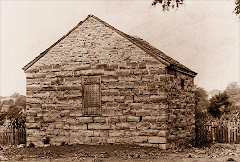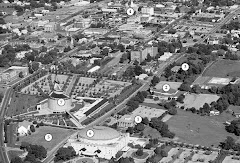
The law of consecration and stewardship is the highest manifestation of gospel living. Many view this law as only a temporal economic program, but it is a spiritual command as well (D&C 29:35). The personal requirements for celestial living are also the foundation for the successful practice of this holy and ancient order of gospel life. It is the basis upon which Zion, the New Jerusalem, is to be built and the preparations completed for the glorious Messianic reign.
President George Q. Cannon taught: “The time must come when we must obey that which has been revealed to us as the Order of Enoch, when there shall be no rich and no poor among the Latter-day Saints; when wealth will not be a temptation; when every man will love his neighbor as he does himself; when every man and woman will labor for the good of all as much as for self. That day must come, and we may as well prepare our hearts for it, brethren, for as wealth increases I see more and more a necessity for the institution of such an order. As wealth increases, luxury and extravagance have more power over us. The necessity for such an order is very great, and God, undoubtedly, in his own time and way, will inspire his servant [the prophet] to introduce it among the people.” (Journal of Discourses, 15:207.)
According to the Doctrine and Covenants, early attempts to build Zion in this dispensation failed because of transgression and because the Saints were “not united according to the union required by the law of the celestial kingdom; and Zion cannot be built up unless it is by the principles of the law of the celestial kingdom” (D&C 105:4–5). These principles are a part of the law of Christ to prepare the sanctified for celestial glory (see D&C 88:20–21). The development of personal righteousness is how the blessings of Zion are obtained, and, in due time, the celestial world. “For this is Zion—THE PURE IN HEART” (D&C 97:21).
The scriptures further describe some of the characteristics of those who strive to live the principles of Zion. Unity is of primary importance: “If ye are not one ye are not mine,” said the Lord (D&C 38:27). Zion requires that all be of “one heart and . . . one mind” (D&C 45:65).
President Spencer W. Kimball reaffirmed the importance of developing unity today.
Another characteristic of the Zion society is that the people “had all things common among them” (3 Nephi 26:19; 4 Nephi 1:3). This is how the law of consecration was administered.
Sacrifice is the principle through which the individual is able to practice the law of consecration. Elder Bruce R. McConkie explained: “I shall now set forth some of the principles of sacrifice and consecration to which the true saints must conform if they are ever to go where God and Christ are and have an inheritance with the faithful saints of ages past.
“. . . The law of sacrifice is a celestial law; so is the law of consecration. . . .
“Sacrifice and consecration are inseparably intertwined. The law of consecration is that we consecrate our time, our talents, and our money and property to the cause of the Church; such are to be available to the extent they are needed to further the Lord’s interests on earth.
“The law of sacrifice is that we are willing to sacrifice all that we have for the truth’s sake—our character and reputation; our honor and applause; our good name among men; our houses, lands, and families; all things, even our very lives if need be.
“Joseph Smith said, ‘A religion that does not require the sacrifice of all things never has power sufficient to produce the faith necessary [to lead] unto life and salvation.’ (Lectures on Faith, p. 58.)
“We are not always called upon to live the whole law of consecration and give all of our time, talents, and means to the building up of the Lord’s earthly kingdom. Few of us are called upon to sacrifice much of what we possess, and at the moment there is only an occasional martyr in the cause of revealed religion.
“But what the scriptural account means is that to gain celestial salvation we must be able to live these laws to the full if we are called upon to do so. Implicit in this is the reality that we must in fact live them to the extent we are called upon so to do. . . .“Now I think it is perfectly clear that the Lord expects far more of us than we sometimes render in response. We are not as other men. We are the saints of God and have the revelations of heaven. Where much is given much is expected. We are to put first in our lives the things of his kingdom.” (In Conference Report, Apr. 1975, pp. 74–76; or Ensign, May 1975, pp. 50–51.)
D&C Study Guide






















